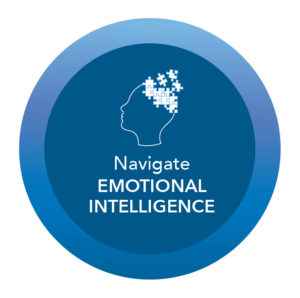The Second Step in Effective Leadership

Leadership is not just about guiding others—it’s about using emotional intelligence to understand yourself and the people you lead. This is the second pillar in the 5 Pillars of Effective Leadership.
While personal development lays the foundation for leadership, emotional intelligence (EI) is the second crucial step that transforms self-awareness into meaningful relationships and impactful decision-making.
Emotional intelligence—the ability to understand, manage, and empathize with emotions—is essential for fostering a thriving team and building a strong business structure.
The Role of Emotional Intelligence in Leadership
Emotional intelligence starts with self-awareness. To lead effectively, you must first understand your own emotions, triggers, and motivations.
Many of our emotional reactions stem from subconscious programming developed early in life, often before the age of seven.
As Carl Jung famously said, “Until you make the subconscious conscious, it will direct your life, and you will call it fate.” Leaders must actively examine and reprogram these internal narratives to lead themselves and others more effectively.
This self-leadership is critical because the hardest person to lead is yourself.
Recognizing and addressing your emotional triggers allows you to stay composed, make intentional decisions, and model emotional control for your team.
When leaders fail to manage their emotions, it creates stress, confusion, and inefficiency within their organization.
Core Elements of Emotional Intelligence
To cultivate emotional intelligence, leaders should focus on these key components:
- Emotional Awareness: Recognize and understand your emotions as they arise. Awareness is the first step toward managing your reactions effectively.
- Emotional Control: Instead of being ruled by your emotions, learn to pause, reflect, and respond intentionally. Between stimulus and response, there is a space—and in that space lies the power to choose your response.
- Empathy and Sensitivity: Understanding and caring about what motivates your team members is vital. Empathy allows you to connect with others on a deeper level, fostering trust and collaboration.
- Intrinsic Motivation: Clarify your own motivations and core values. When you understand what drives you, you can inspire others more authentically.
- Social Skills: Develop the ability to listen actively, show respect, and communicate effectively. These skills are critical for resolving conflicts, setting clear goals, and creating intentional connections.
The Business Impact of Emotional Intelligence
Leaders with high emotional intelligence create workplaces that are productive, positive, and resilient.
Here’s how EI impacts the structure and success of your business:
- Improved Employee Motivation: When leaders understand and care about what drives their team members, employees feel valued and engaged. Engaged employees are more likely to go above and beyond to achieve organizational goals.
- Enhanced Team Collaboration: Empathy and active listening foster a culture of mutual respect and open communication. Teams that trust and understand each other work more cohesively, leading to better outcomes.
- Reduced Conflict: Emotional intelligence equips leaders to handle difficult conversations with grace and clarity. By understanding both their own emotions and the emotions of others, leaders can navigate conflicts effectively and reduce the need for frequent interventions.
- Greater Accountability and Delegation: When employees feel supported and know that mistakes are seen as learning opportunities, they are more likely to take ownership of their work. This builds trust and accountability across the organization.
- Client Satisfaction: Teams that work well together deliver better results. A cohesive and motivated team produces higher-quality work, leading to increased client retention and satisfaction.
Overcoming Challenges with Emotional Intelligence
One common hesitation about leadership is the fear of having difficult conversations. Emotional intelligence helps leaders approach these situations with empathy and purpose. By staying focused on clear goals and understanding the motivations of all parties involved, leaders can turn conflicts into opportunities for growth and alignment.
Additionally, emotional intelligence reduces stress for both leaders and their teams. When emotions are managed effectively, and when everyone feels heard and valued, the workplace becomes a more harmonious and productive environment.
To become an effective leader, you must prioritize emotional intelligence. Start by asking yourself important questions: What motivates me? What are my triggers? How do I listen and respond to others?
As you develop self-awareness and empathy, you’ll find it easier to build meaningful connections, inspire your team, and create a resilient business structure.
Remember, leadership is a journey of continuous growth. By committing to emotional intelligence, you’re not just leading others—you’re creating an environment where everyone, including yourself, can thrive.
Book a Call With Me Today to Start Your Leadership Transformation

